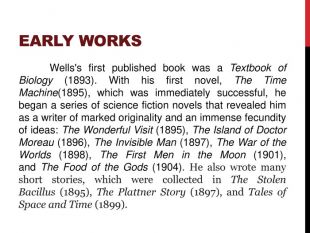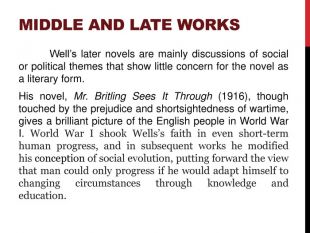Презентація "Герберт Веллс"
Про матеріал
В презентації викладено матеріал англійською мовою з літератури Англії. Може бути використана на уроках літератури Англії . Перегляд файлу
Зміст слайдів
pptx
До підручника
Англійська мова (9-й рік навчання, профільний рівень) 10 клас (Несвіт А.М.)
Оцінка розробки

Безкоштовний сертифікат
про публікацію авторської розробки
про публікацію авторської розробки
Щоб отримати, додайте розробку
Додати розробку




















